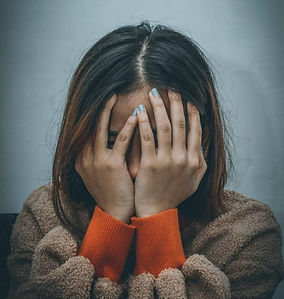Sometimes grief can feel really overwhelming or stick around longer than we expect. Psychiatry can help by providing support and, if needed, medicine to ease some of the hardest parts—like feeling really sad, anxious, or having trouble sleeping. It’s about helping you get through those tough moments so you can heal at your own pace.
Psychiatry for Grief Can Improve:
-
Emotional regulation
-
Understanding your grief
-
Support through complicated grief
-
Adjustment and healing

What is Grief? Grief is the deep emotional pain and sorrow we feel after losing someone or something we care about. It affects our thoughts, feelings, and even our body. Grieving is a personal and unique process that helps us heal and adapt to life after loss.
Does grief go away?Will Psychiatry help? Grief is a dynamic process that evolves rather than simply resolves. While acute symptoms of grief—such as intense sadness and distress—typically diminish over time, some degree of grief may persist as part of ongoing emotional adjustment. In most cases, individuals integrate their loss into their lives and regain functionality. Psychiatry aims to ease symptoms like intense sadness, anxiety, or difficulty sleeping, so you can cope better day-to-day. It also provides support to prevent grief from becoming overwhelming or leading to other mental health issues, helping you heal and adjust in a healthy way.
Grief Throughout Life
Childhood Grief
Children may grieve differently than adults, often expressing feelings through behavior rather than words. They might feel confused, scared, or angry and need extra support to understand and cope with loss.

Adolescent Grief
Teenagers experience grief alongside intense emotional and identity development. They may struggle with feelings of isolation or acting out, and benefit from guidance in expressing and processing their emotions.

Adult Grief
Adults face grief related to many losses—relationships, jobs, health—and often juggle multiple responsibilities. They may experience deep sadness, stress, or anxiety, and require practical coping strategies alongside emotional support.

Older Adult Grief
Older adults often encounter grief from losing peers, spouses, or independence. This stage may involve complex emotions like loneliness and reflection on life, and often requires both social and medical support.


